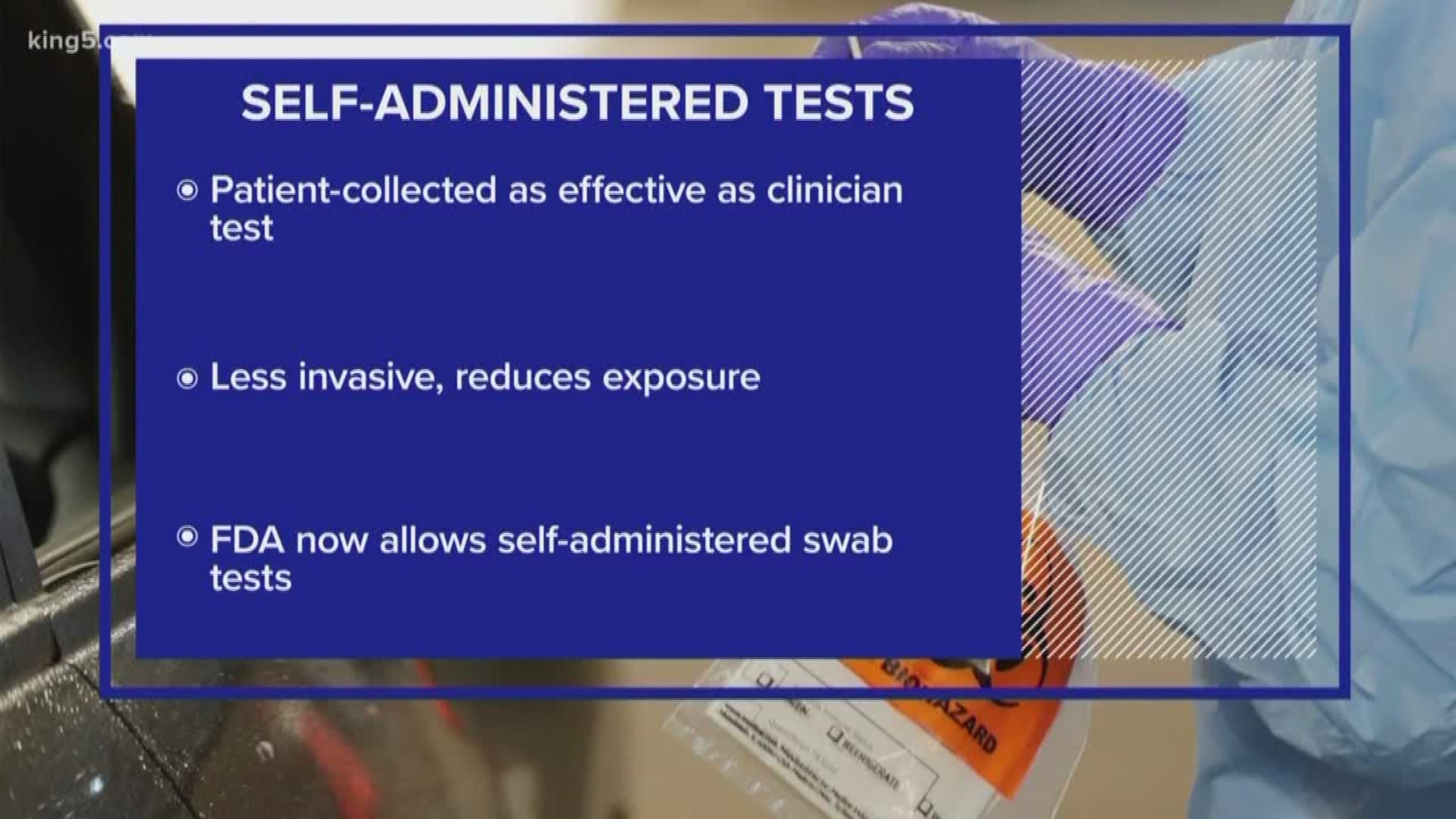SEATTLE — A new study from the University of Washington is helping clear the way for faster coronavirus (COVID-19) testing, while also helping protect health care workers and preserve personal protective equipment (PPE).
The study, which was conducted by UW’s Department of Environmental & Occupational Health Sciences and UnitedHealth Group Research & Development and released Tuesday, found that self-collected COVID-19 samples from nearly 500 patients accurately detected the virus more than 90% of the time in positive cases. The 90% detection rate is consistent with samples collected from health care workers.
The UW said the self-sampling method is “significantly less invasive” and allows patients to collect a sample from the front part of their nostrils and mid-nose. Current COVID-19 testing requires samples from “deep inside the patient’s nasal cavity” and must be collected by a trained health care worker wearing PPE.
"Nasal swabs are extremely easy for anyone to self-collect, in any setting. So it's an excellent way to expand screening while reducing worker exposure," said Gerard Cangelosi, study co-author and professor in the UW Department of Environmental & Occupational Health Sciences.
Based on the research, the U.S. Food and Drug Administration (FDA) updated its guidance for testing, allowing people across the country to self-collect nasal swabs for testing.
Having patients collect their own samples will help protect health care workers from being exposed and help save the PPE available to those on the front lines helping contain the virus.
“We know that broad, rapid, and accurate testing is essential to addressing the COVID-19 crisis. Yet the current clinician-administered process significantly limits testing capacity, puts frontline health care workers at risk of COVID-19 exposure, and is unpleasant for patients,” said study-lead Dr. Yuan-Po Tu, an infectious disease expert at The Everett Clinic. “Making simple, patient-administered testing widely available will substantially improve testing efficiency, while protecting health care workers and preserving urgently needed personal protective equipment, such as face masks, gowns, and gloves.”
Coronavirus tests are currently prioritized for patients showing symptoms, and first responders and workers on the front lines. Several drive-through test sites have been set up across the Puget Sound region, including at the UW Medicine-Northwest campus in Northgate.
Earlier this month, the FDA approved the first coronavirus rapid response test which will produce results in about 45 minutes. Current tests can take at least a few days to get results.

